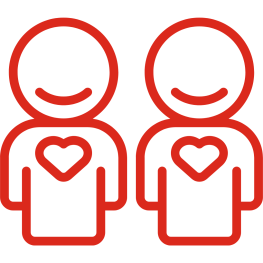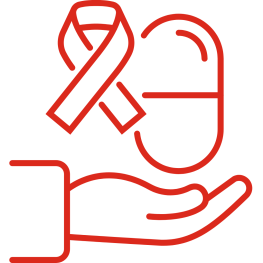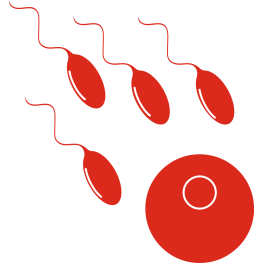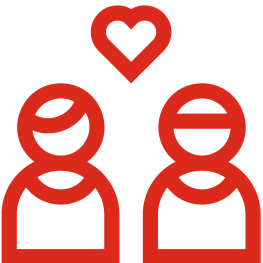

Why are we doing this?
We believe that it is discriminatory and unfair that the law prevents many people living with HIV from using their eggs or sperm for fertility treatments. We are calling on the government to overturn the law as it discriminates towards people living with HIV, which is classed as a disability under the Equality Act. It also discriminates against same-sex couples because they aren’t able to make the same consensual choice as those in mixed-sex couples. Heterosexual couples living with HIV are exempt from the ban (unless they also have to use a surrogate) because they are not considered to be ‘donating’ their eggs or sperm to each other

Who is affected?
Anyone living with HIV who wishes to use a surrogate to conceive a child using their own sperm. This includes a lesbian woman or trans man living with HIV who wishes to have their egg implanted in their female partner, or someone living with HIV who, due to medical reasons, requires a surrogate to have a baby.
This also affects anyone living with HIV who would like to help a friend or family member start a family by donating their eggs or sperm to that person.
All adults should be able to consent to receive eggs or sperm from someone living with HIV and undergo fertility treatment in the same way that heterosexual couples are able to consent.

Why it is safe?
Babies cannot acquire HIV via fertility treatment or natural conception.
Medical treatment for HIV is now so effective that most people living with HIV in the UK have undetectable levels of the virus and can’t pass it on.
Even for men with detectable levels of HIV sperm washing is available which safely separates sperm, which does not carry HIV, from semen, which can carry the virus.

Why does the law exist?
The law dates back to a time when HIV was less well-understood, and treatments were not as effective. Since then, advice has changed for heterosexual couples living with HIV. However, the law continues to treat those not in a heterosexual relationship as donors rather than partners and bans fertility treatment on that basis.

Why not use their partner’s egg or sperm?
Deciding who in an LGBT+ couple gets to be the biological donor for their child is a deeply personal and important decision. There are many reasons why a couple would prefer to choose the person living with HIV as the donor, the same reasons any other LGBT+ couple would. It can be because they want to take it in turns, or one might have a family member willing to be a surrogate on one side but not the other, or just personal preference.
Whatever their personal choice may be, there is no scientific or ethical reason for people living with HIV to be denied the freedom to make these choices between them and their partner. There is no reason for the government to intervene and dictate how people should start a family when the science says there are no issues.

What has this got to do with stigma?
Our research shows that most people are unaware that effective treatment for HIV means you can’t pass the virus on. We’ve found that outdated knowledge of HIV directly leads to stigma around HIV. With the government standing behind this erroneous representation of the science, it perpetuates harmful beliefs around HIV and stands in the way of the government’s aim to end all new transmissions of HIV by 2030.

What are the rules for people in mixed-sex relationships?
People in heterosexual relationships where one or both partners are living with HIV are entitled to access fertility treatment. If the person living with HIV has an undetectable viral load, they are treated the same as HIV negative couples. For those whose viral load is detectable, they are offered sperm washing, which removes semen from the sperm (sperm and eggs do not carry HIV).
Some heterosexual people are also impacted by this law. If a woman is living with HIV and, due to medical reasons cannot carry a child so requires a surrogate, she is also banned from donating her egg to a surrogate.

